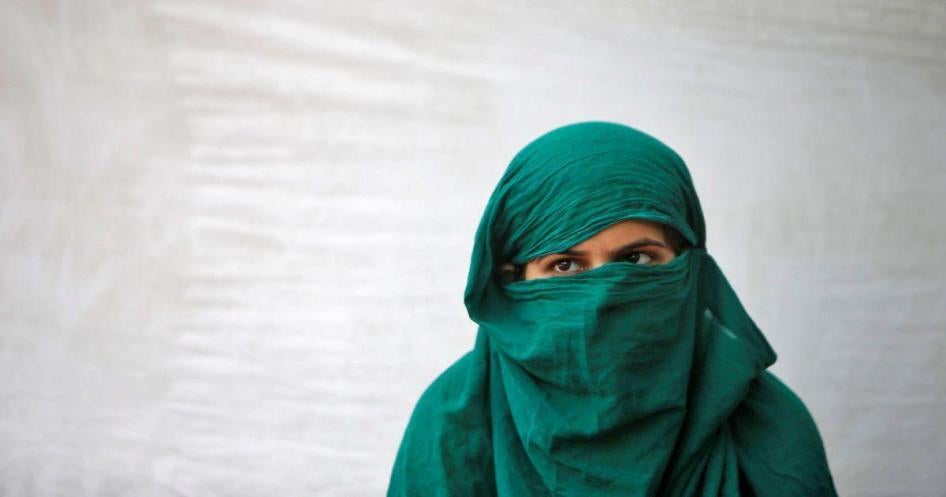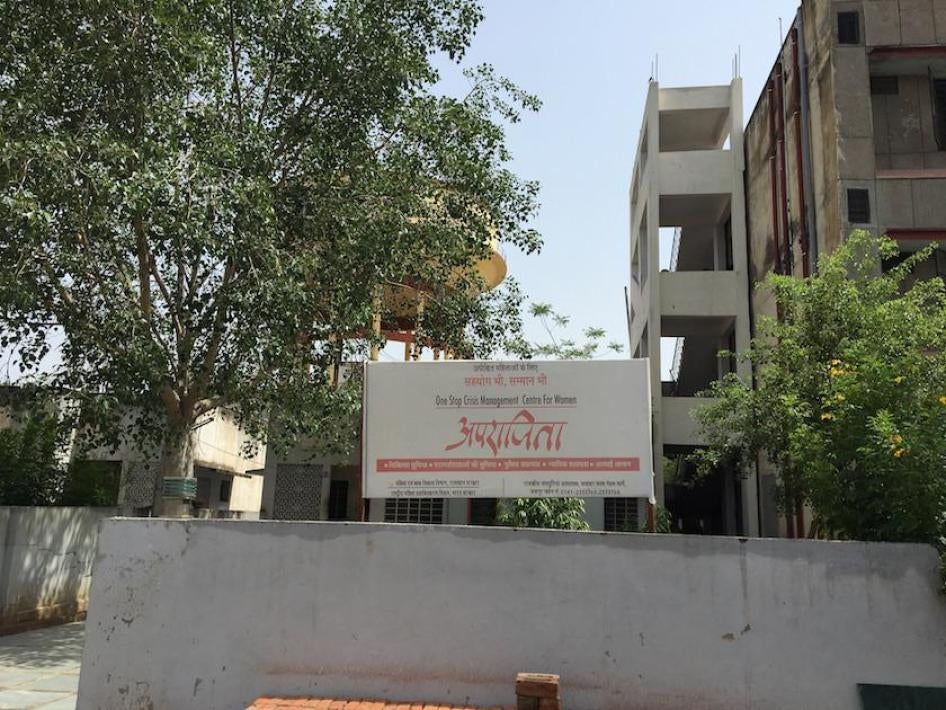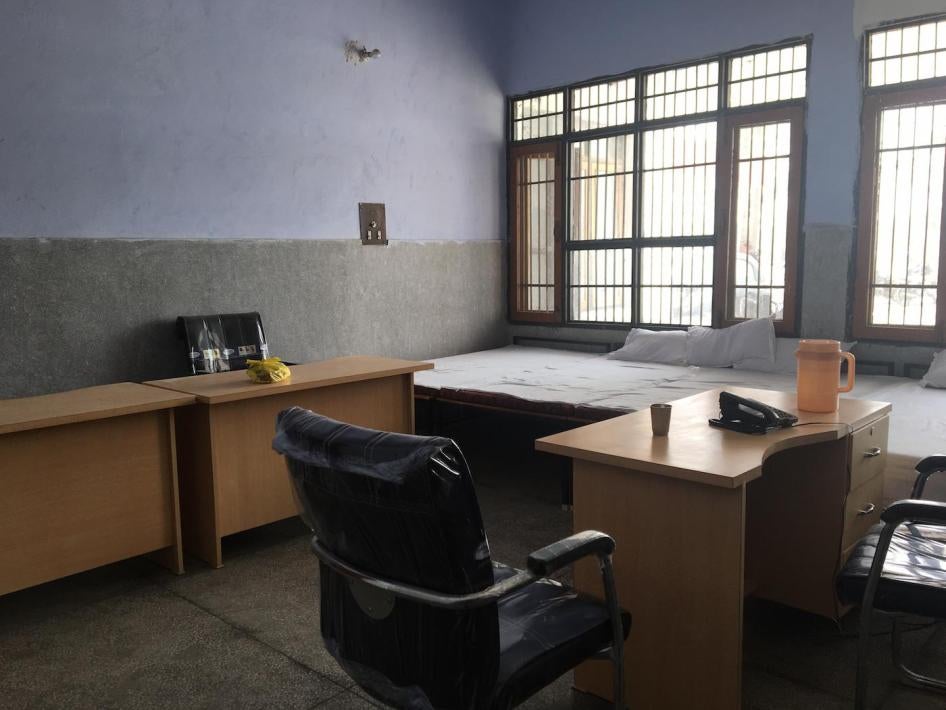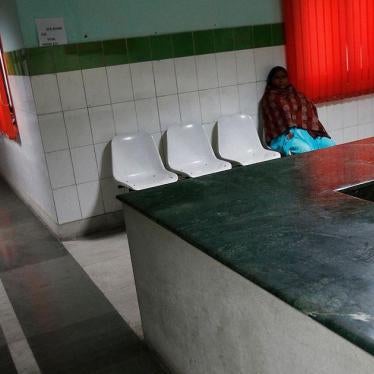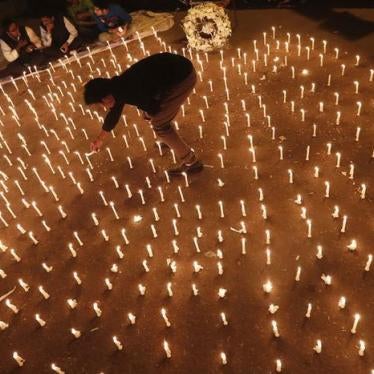“Rape victims don’t really come here,” a woman counsellor from the non-governmental organisation tasked with running the one stop centre in Jaipur said. “They go to the hospital that is connected to the police station where they registered a FIR [First Information Report].”
The one stop centre in Jaipur, named Aparajita, is supposed to be a place where integrated services – police assistance, legal aid, and medical and counseling services – are made available to female victims of violence. These centres were prioritised under the Nirbhaya Fund set up by the central government in 2013, after the public protests following the gang rape and murder of a young woman in New Delhi in 2012, and long-held demands by women’s rights groups.
If they were properly functioning, these centres could fill a critical need for support services for survivors of rape and other forms of violence against women and girls in India. They can also serve as an educational resource for healthcare workers, police, lawyers, and judges.
But in cases of rape, sexual assault, and sexual harassment, Human Rights Watch’s investigation into 21 cases found that women and girls currently struggle, both before and after filing criminal complaints, to access medical help, legal aid, and psychosocial counseling.
‘A failed project’
The Aparajita centre was set up in 2013 as one of the pilot projects before the One Stop Centre Scheme was developed by the central government through the Nirbhaya Fund. However, currently, this centre is doing little to provide integrated services to women survivors of rape and sexual assault because the criminal justice system has yet to consolidate procedures for victim assistance. “If a rape victim comes here, we help her to file the FIR in the related police station,” the counsellor said. “But for her medical exam, she has to go to the related hospital because a magistrate will only accept that.”
A doctor at Jaipuria hospital, where the centre is situated, was scathing about the inconvenient bureaucratic requirements. “It’s a failed project,” he said. “The concept was that police investigations, medical, and legal help, all would be provided in one place. But if the victim has to go back to the police station which has the territorial jurisdiction, what’s the point of the one stop crisis centre?” He said the centre was mostly being used to resolve marital disputes.
Lack of trained counsellors, little access to legal aid, and a failure to link these centres with helplines reduces their effectiveness – and ultimately does not serve victims. There is little public awareness regarding the centers, too. “Walk-in patients in our one stop centers are very few. Not much awareness. [Survivors] are mostly brought by police,” said Puneeta Mahajan, medical superintendent at the Baba Saheb Ambedkar Hospital in Delhi, which also operates a one stop centre under the Delhi government scheme.
In Hisar, Haryana, a temporary one stop centre is located inside the women’s police station while state government authorities await a properly funded and adequately staffed unit within the court complex. The woman who took charge of this centre two months ago said she did not have any capacity: “The truth is we can’t follow up on these cases because we have no resources. We are asked to speak with the victims and help them but we don’t have expert psychologists.”
In 2013, the central government established the Nirbhaya Fund for schemes aimed at prevention, protection and rehabilitation of women allocating Rs 3,000 crore from 2013 to 2017. Three years later, most of the funds allotted for this remained unused. In May 2016, the Supreme Court issued a notice to the central and all state governments seeking an explanation why the funds had not been spent.
A 2017 report by the Delhi-based think-tank Centre for Budget and Governance Accountability and non-governmental organisation Jagori also found that an important scheme, the Financial Assistance and Support Services to Victims of Rape: A Scheme for Restorative Justice, was not implemented despite funds being allocated for it. The scheme was eventually discontinued in 2015-’16.
Delays in providing compensation
As part of the fund, the government set up a central victim compensation fund in 2015 under which a rape victim should receive a minimum of Rs 3 lakh. However, every state has its own compensation scheme, each providing a different amount in compensation to sexual violence survivors. The system is inefficient and survivors wait a long time or are unable to access the scheme.
Out of 17 cases of rape documented by Human Rights Watch, only three survivors had received compensation.
“If the scheme remains on paper, what is the point of it?” said Chitra Joshi, the head of Dilaasa, a crisis centre for women in Mumbai.
Lack of access to effective legal aid
Accessing effective legal aid is a particular challenge for sexual assault survivors, especially those from poor and marginalised communities. In 1994, the Supreme Court ruled that rape victims should be provided legal assistance at police stations. The court also ordered all police stations to keep a list of advocates willing to provide legal assistance in such cases where survivors do not have a lawyer. However, it is rare that police stations provide information regarding legal aid or compensation to the complainant. None of the women whom Human Rights Watch interviewed reported receiving any referrals for legal assistance after approaching the police.
The trial process can be particularly hard for survivors, who might end up having to confront the perpetrator, or be cross-examined by defense lawyers. They need legal aid to understand courtroom procedures, especially because public prosecutors are often overburdened, do not have time to brief victims, or be properly prepared for court.
It is key that legal aid lawyers are adequately trained and sensitised, so that they properly inform victims about their right to compensation, and set aside personal prejudice.
The remarks of a lawyer with District Legal Services Authority in Haryana show the mindset of some members of the legal profession. She told Human Rights Watch, “Women are misusing these anti-rape laws a lot. Eighty percent of rape cases are false. The victim comes to the police station either because they want money or there was some other dispute. Even when it is real rape, the women themselves are responsible for these circumstances. Why doesn’t anyone rape us?”
No accountability
While the government announces statistics on new services, it also needs to urgently establish a regular monitoring mechanism. For instance, while the government said it had set up 151 one stop centers across the country and that it allocated Rs 200 crore to the Central Victim Compensation Fund to supplement existing state victim compensation schemes, these numbers don’t tell the whole story. They don’t say how many of the one stop centres are actually functioning, how well they are functioning, or whether the victims are receiving compensation.
Five years after the brutal rape and murder of Jyoti Singh Pandey shocked India into finally breaking the silence around sexual violence and forcing reforms, much has been achieved at the policy level. But none of this will work unless the promised services actually help those who need them most – the survivors of sexual assault.
This is the final in a three-part series looking at barriers to justice, health care, effective legal aid and other support services for sexual assault survivors in India. despite strong laws and policies since the 2012 gang rape and murder in Delhi. Read parts one and two here.
